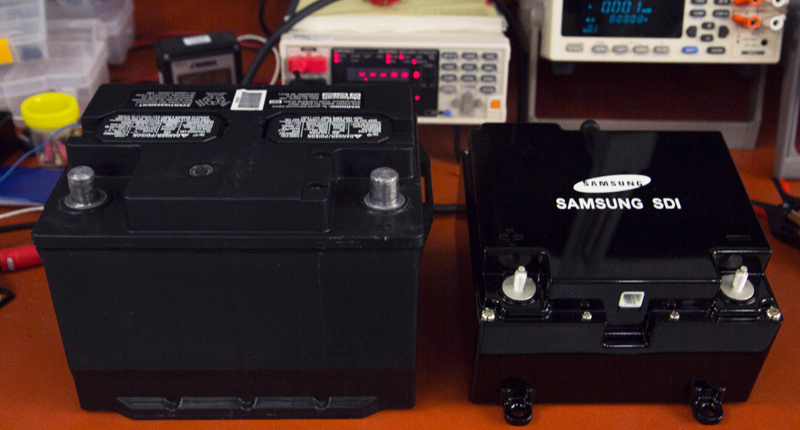If you’ve ever picked up a car battery, you’ll know that its weight can be pretty damn substantial, and that’s hardly ideal in a world where car makers are desperate to save weight wherever they can. Enter a new partnership between Ford and Samsung.
The American motoring giant has teamed up with the Korean tech company to a build a new ultra-lightweight lithium-ion battery concept that the two companies believe could one day render traditional lead-acid batteries obsolete.
No ad to show here.
For now though, the two companies are looking to build batteries that are a hybrid of traditional lead and lithium-ion but which could still result in substantial weight savings. Perhaps the most promising thing about the technology is that it could enable non-hybrid cars to have regenerative braking. That in turn, means potentially big savings at the fuel pump.
“Although still in research, this type of battery could provide a near-term solution for greater reduction of carbon dioxide,†says Ted Miller, senior manager, Energy Storage Strategy and Research at Ford.
The ultimate prize however is getting fully lithium-ion batteries into cars. Ford and Samsung’s research into this field is meant to advance the lithium-ion battery technology currently available on Fordâ€
“Lithium-ion batteries are typically used in consumer electronics because they are lighter and more energy-dense than other types of batteries, which also make them ideal for the vehicle,†said Mike Oâ€
Ford says that the Lithium-ion batteries currently used in Fordâ€
While there have always been questions around the environmental impact of car batteries, especially in hybrids, it’s pretty obvious that putting less of a material into a car battery will result in a lessened impact.
